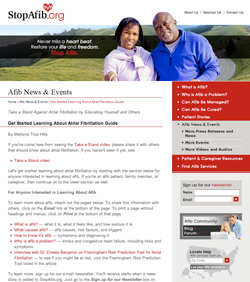
StopAfib.org asks you to take a stand against atrial fibrillation (AF or afib) and stroke by viewing and sharing the Take a Stand video and by educating yourself with the Get Started Learning About Atrial Fibrillation Guide. (www.stopafib.org) Please share this video with family and friends to help wipe out …
Read More



